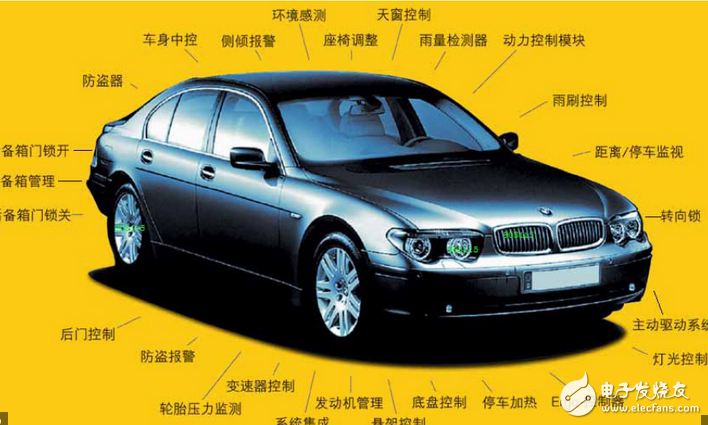Recently, in the field of hydrogen fuel cell vehicles (FCV), there are two major news reports on China's major breakthroughs in this field: China University of Geosciences (Wuhan) and Dongfeng Yangzijiang Automobile Company launched the "Thai Ge" for the first time. The use of liquid hydrogen as an energy source; Zhongyu Hydrogen Energy Technology (Jingzhou) fills the gap in China's hydrogen fuel cell power system.
Although China is making technological breakthroughs in the FCV field like the technology-leading countries represented by Japan, we must face up to the fact that FCV has a very small proportion in the entire automotive market: no large-scale manufacturers participate in R&D. Hydrogen stations exist only in certain regions of the world, and only three FCVs are available on the market and are only available in certain regions. The public knows very little about FCV. We can't help but ask, is FCV really the next revolution in new energy vehicles?

Hydrogen fuel cell vehicle global overview
Compared with the prosperous scene of electric vehicles all over the world, the existence of FCV is extremely low. At present, only developed countries represented by Japan, the United Kingdom, the United States, and South Korea have invested in the research and development of FCV to build a hydrogen refueling station. Facilities, and introduce preferential policies to encourage consumers to buy FCV.
Japan is not only leading the way in hydrogen energy utilization, but also plans to build a clean city with hydrogen energy as its main energy source. Similarly, Japan is at the forefront of the world in the development of FCV. Japan plans to open the Tokyo Olympic Games in 2020, and the hydrogen refueling station will form a network covering the urban belts represented by Tokyo and Osaka. At the same time, the Japanese government is increasing subsidies for consumers to buy FCV, and said that by 2025, the market price of FCV will be reduced to 20,000 US dollars.
In Europe, countries represented by the United Kingdom and Denmark are accelerating the construction of hydrogen refueling stations. Today, Denmark has basically achieved full coverage of the hydrogen refueling station; the United Kingdom and Germany are also increasing the capital investment and geographical coverage of the hydrogen refueling station. In particular, the UK strongly supports FCV in policy and plans to produce and sell 1.6 million FCVs by 2030.
The California area is a paradise for FCV. There are many hydrogen energy companies in California that work with Toyota and Honda to build hydrogen refueling stations. We take Shell as an example. The company's hydrogen refueling station covers the whole of California. FCV users can use credit cards to facilitate payment. As long as they are in California, there is no need to worry about hydrogenation.
South Korea is a force that cannot be ignored. Although there are only a handful of hydrogen refueling stations in Korea and the FCV share is not large, the Korean government has introduced a number of incentive policies: not only have a high car purchase subsidy that accounts for 1/3 of the FCV price, but also plan to reach the national hydrogen refueling station by 2030. The number has increased from the current 10 to 520, which is basically covering all major cities in Korea. In addition, LG Chem, a well-known battery manufacturer in South Korea, and Hyundai Motor, a well-known car manufacturer, have strong R&D capabilities and international competitiveness in the field of hydrogen fuel cells.
The development of China's FCV is still in the stage of technical reserve. There are neither FCV products introduced to the market nor commercial hydrogen refueling stations. Under the general environment of the country's main push for electric vehicles, some scholars said, "China's FCV industry is 5-10 years behind."
Comparison of advantages and disadvantages between hydrogen fuel cell vehicles and lithium battery electric vehicles
In a nutshell, the biggest disadvantage of FCV is its high manufacturing costs. Although in recent years, with the advancement of technology, the price of FCV has dropped from the previous 100,000 US dollars to the current 60-70 million US dollars; but we should also see that Tesla, GM has already adopted high-performance electric vehicles. The price dropped to $30,000.
In addition to manufacturing costs, the advantages of FCV are quite obvious. Some people even think that "FCV is the ultimate form of future cars." Fourth Energy believes that the biggest advantages of FCV are as follows.
First, the replenishment time is short, direct hydrogenation, generally only 3-5 minutes. The fastest charging method for electric vehicles is Tesla's super fast charging, which takes at least 1 hour. The direct replacement battery is not popular.
Second, there is no secondary pollution. The main component of a hydrogen fuel cell is hydrogen, which does not pollute the environment after the end of its useful life. Lithium-ion batteries must be recycled because they contain toxic pollutants such as heavy metals such as nickel, cobalt and arsenic.
Third, the cruising range is farther. Hydrogen fuel cells have high energy storage density and light weight, so the cruising range of FCV is generally farther than that of electric vehicles. FCVs on the market have a cruising range of more than 500 kilometers, while electric vehicles are generally concentrated in 150-250 kilometers. More than 300 kilometers of electric vehicles are only a few products of Tesla and Chevrolet.
With the rapid development of the solar energy and wind energy industries, the current energy storage industry cannot keep up with the pace, and excess electric energy can be used to produce hydrogen energy by electrolyzing water. The linkage of the energy industry will help the FCV to further reduce costs.
Therefore, we believe that with the continuous reduction of production costs, the FCV represented by Toyota Miran will give Tesla a heavy blow with its many advantages.
HuangShi Stee Metal Material Technology Exploitation Co.,Ltd , https://www.wosenstechnology.com